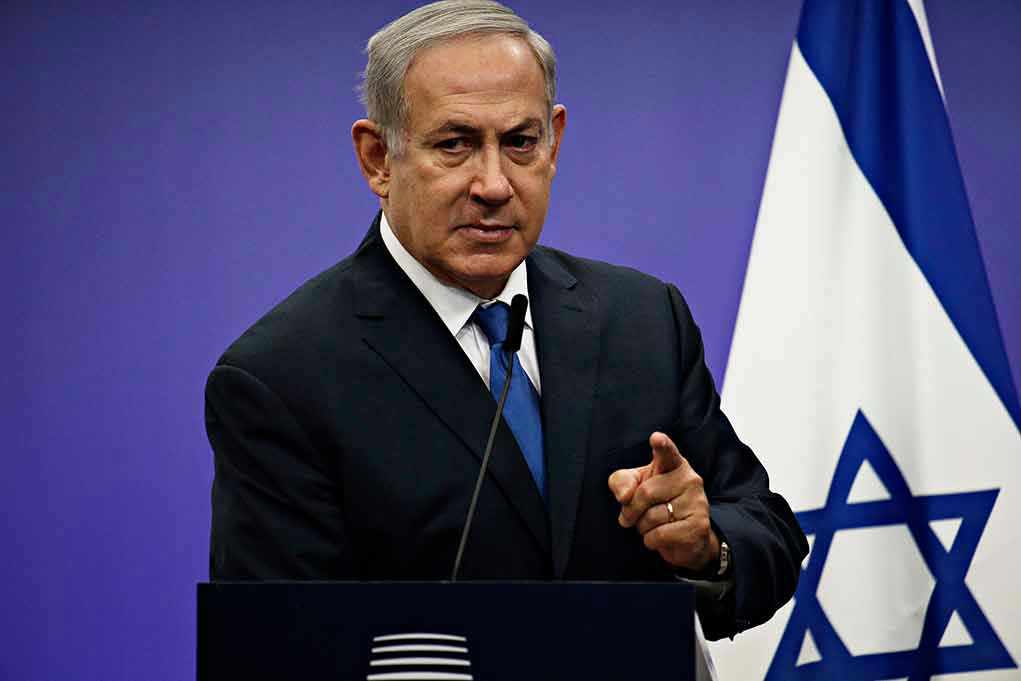
Netanyahu’s denial of conspiracy theories linking Israel to Charlie Kirk’s murder exposes the severity of misinformation campaigns.
Story Overview
- Israeli Prime Minister Benjamin Netanyahu strongly denies Israeli involvement in Charlie Kirk’s murder.
- Conspiracy theories have rapidly spread, some alleging Mossad’s involvement.
- Netanyahu accuses Qatar of fueling these baseless allegations.
- The case highlights the dangers of misinformation and antisemitic narratives.
Netanyahu’s Firm Denial
Israeli Prime Minister Benjamin Netanyahu publicly refuted conspiracy theories connecting Israel to the assassination of Charlie Kirk. Following Kirk’s murder on September 10, at Utah Valley University, a surge of online rumors implicated Mossad. Netanyahu condemned these as “monstrous, big lies,” emphasizing their lack of credibility and potential Qatari origin. His strong stance aims to protect Israel’s reputation amid these unfounded allegations.
Netanyahu’s involvement in addressing these rumors underscores the seriousness of the reputational threat posed by such misinformation. The rapid spread of these theories reflects a broader pattern of antisemitic and far-right narratives targeting Israel. This situation parallels past incidents where Israel was wrongfully accused in high-profile deaths, such as those of Jeffrey Epstein and others. Netanyahu’s accusations against Qatar add a layer of complexity, highlighting ongoing regional tensions and information warfare.
Conspiracy Theories and Their Impact
The conspiracy theories surrounding Kirk’s murder have not only drawn international attention but have also intensified political discourse within the United States. These narratives exploit existing partisan divides, with far-right and antisemitic online communities amplifying baseless claims. Tyler Robinson, charged with Kirk’s murder, remains in custody as law enforcement continues to investigate his motives and connections. Despite the lack of evidence, these theories persist, underscoring the challenge of combating misinformation.
Netanyahu’s accusations against Qatar suggest a geopolitical dimension to the spread of these rumors. Qatar has been implicated in past diplomatic spats with Israel, often involving media narratives and regional influence. The allegations of Qatari involvement in amplifying these conspiracy theories could further strain relations between the two countries, highlighting the broader implications of information warfare in international relations.
Addressing the Misinformation Challenge
The case of Charlie Kirk’s murder underscores the vulnerability of news cycles to rapid misinformation. Experts emphasize the need for robust fact-checking and vigilance against antisemitic narratives. The Antisemitism Research Center (ARC) has documented the tactics used by antisemitic agitators to exploit high-profile events, drawing parallels to previous incidents. As the situation unfolds, the importance of credible, evidence-based reporting becomes paramount in countering the spread of false information.
Netanyahu slams ‘insane’ conspiracy theories linking Israel to Charlie Kirk’s death, says lies could be Qatari-funded https://t.co/vXUh96bbDd pic.twitter.com/damuSuqzSl
— New York Post (@nypost) September 18, 2025
Looking ahead, the incident serves as a reminder of the potential for foreign-fueled disinformation to influence domestic discourse and international relations. It also highlights the ongoing challenges faced by governments and media organizations in addressing the rapid spread of false narratives, particularly those rooted in antisemitism and geopolitical rivalries.
Sources:
Netanyahu Denies ‘Monstrous Lie’ Linking Israel to Charlie Kirk Killing
Antisemitism Research Center Report

